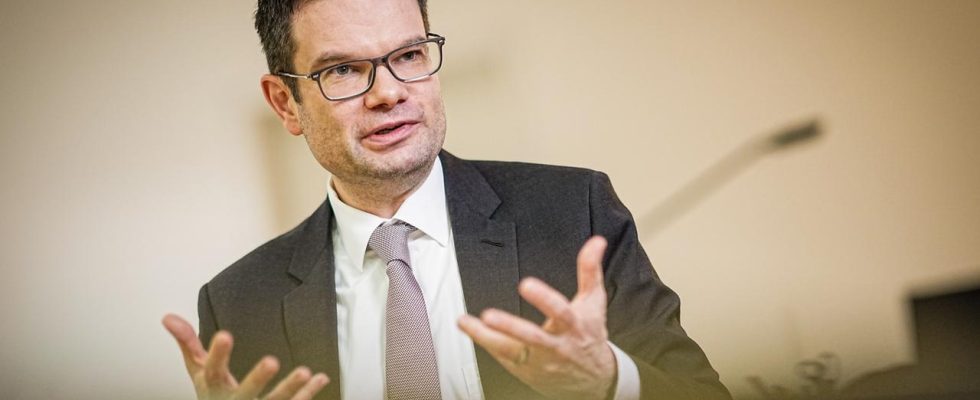Valuable information for the police, but serious violations of fundamental rights for those affected: Minister of Justice Buschmann wants to limit access to smartphones. This is shown by a draft law that ARD Capital Studio present.
There were hardly any traces of the 14-year-old Ayleen missing in July 2022 in Baden-Württemberg. Her body was only found in a lake in Hesse a week later. A nightmare for the bereaved. Police were only able to locate the body using location data from her cell phone.
But another number appeared in the radio cell – that of the possible perpetrator, who is now on trial. Here it was the data stored by the provider that made the investigation successful. The evaluation of the chats on the mobile phones are now further important evidence in the trial before the district court in Giessen.
Important investigative tool
The means by which the police can read such older but also ongoing chats is what the draft law from the FDP-led Federal Ministry of Justice is about ARD Capital Studio present. Since 2017, the Code of Criminal Procedure has allowed encrypted communication in messenger services – such as Whatsapp – to be monitored in certain cases: the so-called source telecommunications surveillance, or source TKÜ for short.
This is done by installing specific software on the end device. But the instrument is controversial, as it ultimately interferes with the constitutionally protected integrity and confidentiality of an information technology system, in short: with privacy. Chats with uninvolved third parties could also be read out.
FDP: Only for serious crimes
In a judgment from 2016, the Federal Constitutional Court already formulated certain requirements for such a source TKÜ.
The draft law from the house of Marco Buschmann now wants to take more account of this and make the application more precise. For example, the source TKÜ should only be used in the case of particularly serious crimes. The Ayleen murder case is undoubtedly still part of it. But in the case of document forgery or competition crimes, the police should no longer be allowed to rely on the source TKÜ for the investigation.
Similar intervention-intensive as the online search
Another point of criticism is that the source TKÜ can hardly be distinguished from a so-called online search, which is about more than just pure communication, but also about data stored on the end devices.
According to the current legal situation, online searches are subject to stricter requirements. If possible, these should also apply to the source TKÜ. At the same time, the source TKÜ should also be technically limited in such a way that it really only records ongoing communication. Access to already completed chats should be prevented.
In addition, in the future it will no longer be decided by a single judge whether the source TKÜ should be used, but by the chamber of a regional court – here, in addition to full-time judges, there will also be up to two lay judges. An extension may no longer be ordered for three months, but only for one month.
borders of online search are planned
It is not uncommon for smartphone, tablet or PC users to take their devices with them everywhere – even in the bedroom. The technology would theoretically enable room surveillance by allowing the investigators to control the camera or microphone. For the sake of clarification, the draft law wants to completely rule out this theoretically possible serious invasion of privacy by means of an online search.
The traffic light had agreed on a reform in their coalition agreement. The extent to which this draft now meets the needs of the law enforcement authorities, for which the SPD-led Federal Ministry of the Interior is responsible, should be clarified in the upcoming departmental vote.

